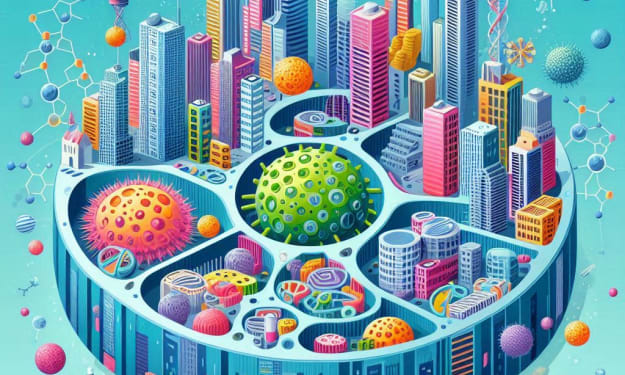Common Foods you eat often that is capable of destroying the kidney and liver
Kidney-Liver: High-Risk Foods

Foods you eat often that is capable of destroying the kidney and liver
Kidney-Liver: High-Risk Foods
Maintaining a healthy lifestyle and making informed dietary choices is crucial for the proper functioning of vital organs like the kidneys and liver. While a balanced diet can promote their well-being, certain foods can have detrimental effects when consumed in excess or by individuals with pre-existing conditions. In this guide, we will explore foods that, when consumed regularly and excessively, have the potential to harm the kidneys and liver. It is important to note that moderation and individual circumstances play a significant role in assessing the impact of these foods.
High-Sodium Foods:
Excessive intake of sodium-rich foods such as processed meats, canned soups, and salty snacks can lead to high blood pressure and fluid retention. These conditions put strain on the kidneys, potentially leading to kidney damage and reduced functionality.
Red and Processed Meats:
Red meats, particularly those high in fat, contain abundant amounts of cholesterol and saturated fats. Consuming these meats excessively can contribute to obesity, high blood pressure, and the accumulation of harmful substances in the liver, ultimately increasing the risk of liver disease.
Sugar-Sweetened Beverages:
Sodas, energy drinks, and fruit juices with added sugars contribute to the development of obesity, diabetes, and metabolic syndrome. These conditions can put excessive stress on the liver and kidneys, leading to long-term damage.
High-Fructose Corn Syrup:
Foods and beverages containing high-fructose corn syrup, such as candies, soft drinks, and some processed foods, have been linked to increased liver fat accumulation, insulin resistance, and non-alcoholic fatty liver disease (NAFLD).
Artificial Trans Fats:
Partially hydrogenated oils and foods made with them, like margarine and certain baked goods, contain artificial trans fats. These fats have been associated with liver inflammation, insulin resistance, and an increased risk of heart disease, which indirectly affects kidney health.
Excessive Alcohol Consumption:
Alcohol is a leading cause of liver disease, as it directly damages liver cells and interferes with their ability to function properly. Heavy alcohol consumption can lead to liver cirrhosis, fatty liver disease, and other serious conditions, often resulting in kidney damage as well.
High-Purine Foods:
Foods rich in purines, such as organ meats, shellfish, and certain types of fish, can lead to increased uric acid levels in the body. Elevated uric acid levels can contribute to the development of kidney stones and gout, putting strain on the kidneys.
High-Oxalate Foods:
Foods high in oxalates, including spinach, rhubarb, beets, and chocolate, can contribute to the formation of kidney stones in susceptible individuals. Consuming these foods in moderation is generally safe, but excessive consumption can increase the risk of kidney stone development.
Caffeine and Energy Drinks:
While moderate caffeine consumption is generally considered safe, excessive intake can lead to dehydration, increased blood pressure, and potentially worsen existing kidney conditions. Energy drinks, in particular, contain high levels of caffeine and should be consumed with caution.
Excessive Salt Substitutes:
Certain salt substitutes contain potassium chloride instead of sodium chloride. Individuals with compromised kidney function should limit their intake of these substitutes, as excessive potassium levels can be harmful to the kidneys.
When it comes to maintaining kidney and liver health, moderation and a balanced diet are key. While the foods mentioned in this guide have the potential to harm these organs when consumed excessively or in certain circumstances, it is important to consult with a healthcare professional for personalized advice. By making informed choices, practicing portion control, and considering individual health factors, it is possible to enjoy a varied diet while safeguarding
Kidney and liver are vital organs responsible for filtering toxins and waste from our bodies. Consuming certain foods in excess or inappropriately cooked forms can pose a high risk to these organs. High-risk foods for kidney and liver health include processed meats, which are high in sodium and preservatives, leading to increased strain on the kidneys. Excessive intake of red meat can contribute to kidney damage due to its high protein content. Additionally, foods high in saturated fats, such as fried foods and fatty cuts of meat, can negatively impact liver health by promoting inflammation and fat accumulation. It is important to maintain a balanced diet and limit the consumption of these high-risk foods to safeguard kidney and liver function.
About the Creator
Bridget Dyke
As a passionate writer of fiction and general articles, I invite you to embark on an extraordinary literary journey with me. With immersive stories and thought-provoking articles that will captivate your mind and touch your soul.
Enjoyed the story? Support the Creator.
Subscribe for free to receive all their stories in your feed. You could also pledge your support or give them a one-off tip, letting them know you appreciate their work.






Comments
There are no comments for this story
Be the first to respond and start the conversation.